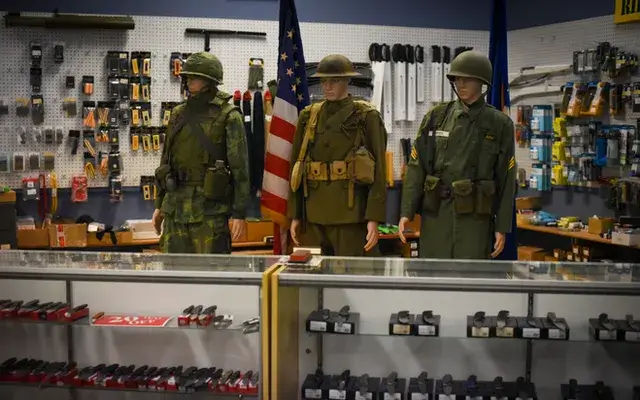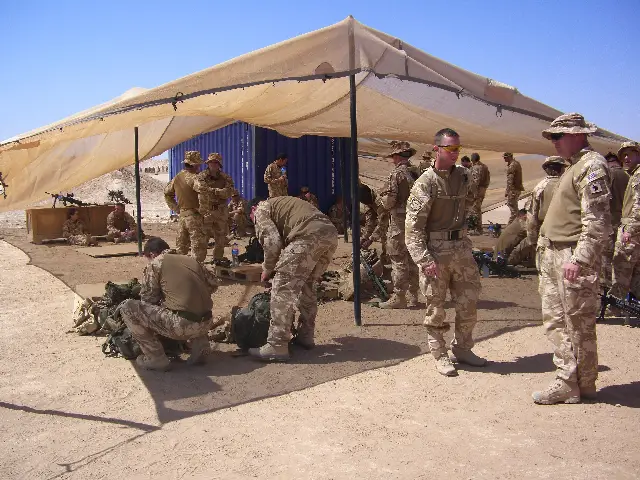Wearing a military uniform from a surplus store is generally discouraged, as it can be disrespectful and against regulations in many places. Unauthorized wear of official uniforms can undermine the significance of military service and be perceived as insensitive or offensive.
Is It Okay to Wear a Military Uniform from a Surplus Store?
The controversy surrounding civilians wearing military uniforms can be polarizing. Some argue that it is a way of showing respect and admiration for the armed forces. Others insist that wearing such a uniform trivializes the dedication and sacrifices made by service members. Here is a list of arguments as to why it may or may not be okay to wear a military uniform from a surplus store:
- Respect for Traditions and Formality
- Ethically, military uniforms stand for the dignity and solemnness of a nation’s defense forces. The formality and respect engaged in wearing these uniforms are high and should be maintained.
- Inauthentic Depiction
- Wearing a military uniform casually may be seen as an inauthentic depiction, indicating misleading societal roles. An authentic military uniform is laden with badges, ribbons, and stripes, which indicate rank, achievement, or a role in the military force.
- Regulation Compliance
- In some countries, laws have addressed the issue of civilians wearing military uniforms. Hence, it is crucial to respect these laws to avoid legal consequences. For instance, in the U.S., the Stolen Valor Act (2013) makes it illegal to falsely claim military service, awards, and badges for personal gain.
- Expression of Admiration
- It is argued that wearing military surplus as a civilian could be viewed as an outward expression of admiration for the military system.
- Quality and durability
- The fact that military outfits found in surplus stores are usually well-made, durable, and less expensive than similar civilian clothes appeals to some people.
- Protesting Contemporary Military Practices
- Some individuals opt for wearing military clothing to express their opposition to contemporary military practices or policies.
| Perspective | Argument |
|---|---|
| Respect for Traditions and Formality | Military uniforms represent the dignity of defense forces |
| Inauthentic Depiction | Military uniforms bear significant markers |
| Regulation Compliance | Compliance with laws addressing civilian use of military uniform |
| Expression of Admiration | A way to exhibit respect for the armed forces |
| Quality and Durability | Military surplus offers lasting quality |
| Protesting Contemporary Military Practices | A form of protest against military policies |
In conclusion, whether it is okay to wear a military uniform from a surplus store depends largely on intent, local laws, and societal acceptance. It’s indisputable that if any form of misrepresentation or falsification is intended, it is not only unethical but possibly illegal. However, if all these aspects are considered and respected, then sporting a military surplus could potentially be seen as an act of admiration or as a creative fashion choice.
What Is a Surplus Store?

A surplus store is any retailer that sells military or industrial clothing, equipment, and gear. To be considered an actual surplus store, they must carry items taken out of active service by military or federal government agencies.
Items sold in surplus stores may come directly from government agencies or via donations made by citizens as part of general efforts to reduce waste. Surplus items are typically sold at very affordable prices regardless of their origins. They’re widely popular with individuals looking for cheap clothing and people searching for specialized work gear.
The main issue surrounding surplus stores and military uniforms is whether it’s appropriate to wear them.
Although many people buy these uniforms for reenactment purposes, others wear them daily. Some manufacturers produce modern-day equivalents of surplus clothing explicitly designed for daily use.
While it is generally okay to wear a uniform you bought at a surplus store as long as you are not impersonating an actual armed forces member, you should still remember some things:
- First, ensure your clothing isn’t marked property of the United States Government. If it is, you shouldn’t be wearing it outside your home unless you’ve received explicit permission from your local government agency.
- Second, don’t alter your uniform unless you plan to join a military branch. It means no painting or sewing on patches or badges unless they belong to an official organization like Boy or Girl Scouts of America.
If you decide to get involved with official scouting programs later down the road, most require new members to purchase all new uniforms anyway.
Can I Buy the Uniform from the United States Army?
You’re covered under certain agreements if you buy something directly from an Army post or purchase items on behalf of a non-profit they’ve partnered with.
However, if your purchase is made through any other vendor that is a third party, there could be problems later on. In particular, anyone who purchases army surplus on behalf of the United States armed forces and foreign military sales customers is expressly forbidden unless an exemption applies. Even if someone buys something through official channels and there are no explicit restrictions written into the regulations, it can still lead to penalties if not reported correctly.
You might have permission to wear one of those uniforms right now, but what happens when you don’t report your purchase as required? You’ll get hit with fines and possibly jail time. That doesn’t mean just resellers; anyone who wears a uniform purchased without proper authorization will face charges too. Ensure you know where your clothing came from before wearing it out in public.
What Can You Do with the Clothing?
If you don’t have permission, what should you do with the clothing once you receive it in the mail or buy it online?
It depends on whether or not you wear the uniform in public. If you have not worn it in public and do not plan on wearing it anywhere other than your home, go ahead and send it back.
When returning items, write a letter explaining why you’re sending them back if it’s too big/small or the wrong color. If you have worn any part of the uniform in public (including taking it out of its packaging), contact the police immediately.
Don’t try to destroy or hide evidence that the police can track you; instead, try to return everything without being seen by anyone who might be able to link it with you. The store may also be required to report their suspicion of stolen goods to local law enforcement. In addition, if you can prove where you bought something, likely, the police will likely only fine rather than arrest you for possessing stolen property.
If they are sure there is enough evidence to prosecute, they may arrest you anyway. The best thing to do is avoid getting caught in the first place.
Can I Donate My New Items Instead of Returning Them?
If you received clothing as a gift and it doesn’t fit, use it as a tax deduction. Deduct clothes you give away or sell at half your value. If your jacket sells at twenty dollars at your local army surplus store and is worth fifty dollars, you can write off ten dollars.
That way, you won’t lose money if someone buys your donation. And if someone does buy that jacket for its total value, that’s a benefit to you. It means two things:
- Someone was looking for exactly what you were wearing and
- No one else may want that garment in any other size because it’s what they’re looking for.
However, there is some exception to these rules. For example, suppose you wear military uniforms while performing official duties as an active-duty armed forces member. In that case, you cannot claim a charitable contribution deduction for those uniforms even though they are donated to charity. But don’t worry; there exist various ways to support troops without having to claim them on your taxes.
What Can I Do If I Can’t Return the Items?
While wearing military uniforms, you must wear them with respect. If you don’t respectfully wear a uniform, it could insult those who serve. If you are going to be wearing one of these uniforms, do so with dignity and honor.
If you can’t return your items for some reason or another, there are two options for destroying them:
- You can carefully cut up or burn your clothing and then dispose of it all accordingly, and you should talk to someone at your base or local military store before doing so.
- Donate it to charity, and chances are there’s someone around where you live that will gladly accept hand-me-downs like new clothes and blankets. Before donating anything, ensure to check out its condition first. If it’s stained or torn beyond repair, don’t bother donating it. Ensure whatever you give away is still useable.

Is Selling These Uniforms Online Okay Even If They Are Not Vintage?
Selling secondhand military clothing online may seem like an easy way to make some cash, but it’s against the United States and international laws unless you have specific permission.
The problem is that these items, often very personal, are protected by copyright laws, which means sellers need to obtain permission from their military branch and the manufacturer.
However, in most cases, merchants won’t pursue legal action against those who sell or purchase military gear illegally; they hope that you don’t, but many people do it anyway.
References:
https://militaryexcess.com/is-wearing-military-clothes-disrespectful/
https://www.quora.com/Is-it-okay-to-wear-a-military-uniform-from-a-surplus-store-if-you-dont-claim-to-be-a-soldier

